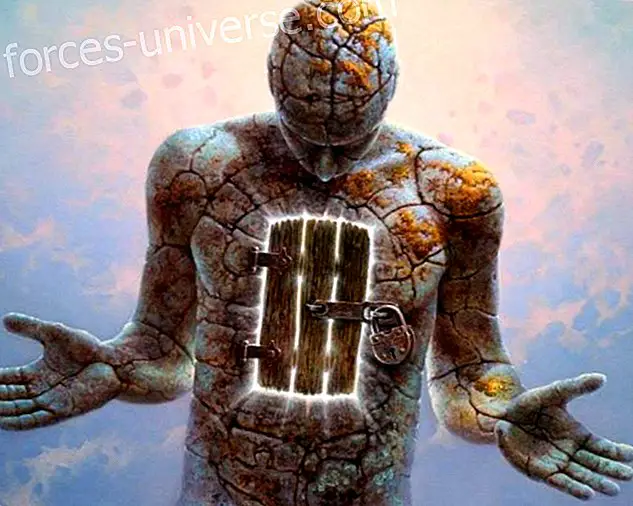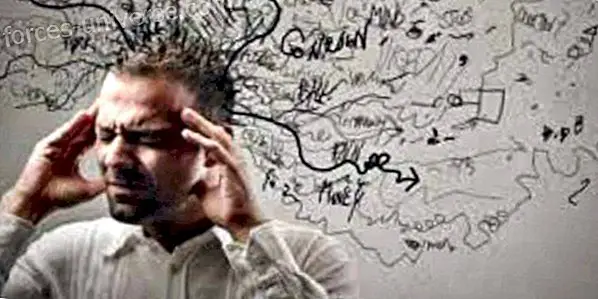
There is an area of human experience for which we do not have, in fact, any suitable name in our western languages, since, although fundamental for matters such as religion, metaphysics and mysticism, it is not identical to any of them. I refer to the kind of eternal experience that is more or less described as the immediate knowledge of God, or of the ultimate reality, of the foundation or essence of the universe, whatever the name with which it is represented.
According to the ancient spiritual traditions of both Europe and Asia, which encompass ways of life and thought as different as Buddhism and Catholicism, this experience is the supreme achievement of human life, the goal, the end towards which human existence Is ordered.
However, according to modern logical philosophy - scientific empiricism, logical positivism and the like - this kind of statement makes no sense. Although it is admitted that there may be interesting and exquisite " mystical " experiences, logical philosophy finds it absolutely illegitimate to think that they contain no knowledge of a metaphysical nature, which constitute an experience of the " ultimate reality " or of the Absolute.
This criticism is not based on a psychological analysis of one's own experience, but on a purely logical analysis of universal concepts such as God, Ultimate Reality, Absolute Being and the like, which have been shown to be terms without any meaning. It is not the purpose of this writing to describe the steps of this criticism in any detail, since the student of modern philosophy must be sufficiently familiar with them, and it does not seem necessary to disagree with the logical reasoning itself. The initial point of this writing, however perverse it may seem, relates to the basic reasoning that modern logical philosophy has contributed in a very important way to metaphysical thinking, allowing us to evaluate the authentic character and function of metaphysical terms and symbols. much less confusing than it had been possible until now.
However, this evaluation is not the kind of devaluation proposed by some of the proponents of logical philosophy, such as Russell, Yesterday and Reichenbach. Since the positive contribution of logical philosophy with respect to metaphysics and religion has been marred by the fact that such defenders were not content just by being logical. Because of a certain emotional prejudice against religious or metaphysical views, this logical criticism has been used as an instrument of attack, even propaganda, with emotional rather than logical motivations.
It is one thing to show that the concept of being does not have a logical meaning, but a very different one is to affirm that this and other metaphysical concepts of similar nature are not philosophical but poetry. a, when in this case the term poetry contains an intense pejorative meaning. The implication is that the es poes a of religious and metaphysical symbols can be a reason or reason for very exquisite and inspiring but inspiring emotional experiences, such as The arts in time of war are not included among the essential things of life. The serious philosopher considers them as beautiful toys, as a means to decorate life, but not to understand it; In a way, it is like a doctor who adorns his office with a mask of healing powers from the southern seas. All this is no more than criticize with vague praise.
While, for their part, proponents of philosophical philosophy have tried to devalue the perception of metaphysics and religion, most of those who want to Being defenders of the faith have tried, without any success, to find some means to defeat the philosophical logic with their own game. Taken together, the most successful counterattack seems to have returned a disdain for another; as, for example, the occurrence that Yesterday, Reichenbach and company have changed the philosophy for the grammar.
However, in the context of Western philosophy and religion, this situation is not surprising, since we have always had the impression that religious-metaphysical statements they belong to the same category as the scientific and historical ones. We have generally assumed that the proposition there is a God is an affirmation of the same type that there are stars in the sky . The assertion that `` all things are '' has always been considered as communicating information in the same way that the assertion all human beings are mortal . What's more, God created the universe, it has a lot of historical declaration of the Alexander ham Alexander Graham Bell's invention invented the telephone.
Dr. FSC Northrop is correct in pointing out the essential similarity between science, on the one hand, and Judeo-Christian religious tradition on the other, to the extent that they both relate to truth as an objective reality structure, whose nature is determined, although it cannot be perceived. Actually, the scientific spirit has its historical origins in the kind of mentality that is interested in knowing the supernatural and the invisible in terms of positive propositions, which wants to know the reality lying beneath the surface of events. Thus, Christian theology and science have, in a certain way, the same historical relationship as astrology and astronomy, as alchemy and qu' mica: both constitute the corpus of a theory whose purpose is to explain the past and predict the future.
But Christianity did not disappear with the alchemists. From the preponderance of modern science, theology has been playing a more problematic role. He has taken numerous and different attitudes towards science, ranging from denouncing it as his rival doctrine, to reconcile and adapt to a kind of withdrawal in which the feeling that theology speaks of a kingdom dominates from being inaccessible to scientific research. Throughout this time, there has been a general assumption, both by theologians and scientists, that both disciplines used the same type of language, and that they were interested in the same kind of objective: to determine truths. Actually, when some theologians speak of God as having " an objective and supernatural reality, independent of our minds and the sensitive world, " it is impossible to see how their language differs from that of science. Since it seems that God is a specific thing or factor — an objective existence — supernatural, in the sense that it cannot be perceived by the “ wave band ” of our sensory organs and scientific instruments.
While this confusion between the nature of religious or metaphysical statements, on the one hand, and scientific or historical ones, on the other, remains unclear, it will naturally be difficult to see how modern logical philosophy can contribute in some positive way to metaphysics. . In a theological system in which God plays the role of a scientific hypothesis, that is, of a means of explaining and predicting the course of events, it is easy to demonstrate that the hypothesis adds nothing to our knowledge. No one explains what happens by saying that it is by the will of God. For if all that happens is thanks to intentionality or divine permissiveness, God's will simply becomes another name of " everything that happens ." Under a logical analysis, the statement: " Everything is according to the will of God, " becomes tautology: " Everything is everything ."
Simply put, so far the contribution of logical philosophy to metaphysics has been completely negative. The verdict seems to be that, after a logical analysis, the entire corpus of metaphysical doctrine is made up of tautologies or absurdities. But this entails a complete "discrediting" of metaphysics only as to the way of understanding in the West, which consists of significant statements that provide information on "transcendental objects . " Oriental philosophy has never had the serious opinion that metaphysical statements provide positive information; Its function is not to denote " reality " as an object of knowledge, but to "cure" a psychological process in which the human being is frustrated and tortures himself with all kinds of unreal problems. For the Eastern mind, " reality " cannot be expressed; You can only know yourself intuitively by freeing yourself from unreality, from contradictory and absurd ways of thinking and feeling.
The main contribution of logical philosophy in this area is simply the confirmation of a point that both Hindus and Buddhists have long been clear about, although perhaps the Christian tradition had not realized so much. The point is that trying to talk about, think about, or know the Ultimate Reality is an impossible task. If the epistemology tries to know " what it knows ", and the ontology define " what it is ", it is evident that they are circular and useless procedures, it is like trying to bite our own teeth.
In a comment from Kena Upanishad, Shankara says:
“ It is possible to obtain a clear and concrete knowledge of everything that
it can become an object of knowledge: but in the case of That it is
impossible because it cannot become such an object. Since that, the brahman, is
the Knower, and the Knower can know other things but cannot be the
object of your own knowledge, just as fire can burn other things,
but not himself. "
Similarly, the Brihadaranyaka Upanishad says:
“ You cannot see the one who sees the vision, nor hear the one who hears the sound, nor perceive
to the one who perceives the perception, nor to know the connoisseur of knowledge (111, 4.2) ”
Or, in the words of a Chinese Buddhist poem:
" It's like a sword that hurts,
but that cannot hurt itself.
It's like an eye that sees,
but that he cannot see himself. ”
Physics faces a similar problem when trying to investigate the nature of energy. Well, there comes a point where physics, like metaphysics, penetrates the realm of tautology and the absurd due to the circular nature of the work it intends to do: study electrons with instruments that, after all, They are also electrons.
Even at the risk of citing a source in a certain old fashioned way, the classic statement of this problem is found in Eddington's Nature of the Physical World :
“We may have forgotten that there was a time when we wanted to be told what an electron was. The question remained unanswered ... Something unknown is doing something we do not know, this is the result of our theory. It doesn't sound too enlightening. I read something similar in another place: agile-minded people turned the limazones down the distant vaparas ... It is the same theory of activity. The same inaccuracy about the nature of the activity and what acts . ”
Eddington goes on to point out that, despite its inaccuracy, physics can "get results, " since electrons, those strangers inside the atom, can be counted.
“ Eight limazones gyroscan agiliscosos baranrando by the distant vaparas of oxygen; Seven in the nitrogen. By admitting some amount, even «Galimatazo» can become a scientist. Now we can venture to make a prediction; if one of its limazones escapes, oxygen will acquire an appearance that, in fact, belongs to nitrogen… Translating it into the language of the “Galimatazo” will help us remember the essential impenetrability of the fundamental entities of physics; as long as the number and metric attributes are not changed, it is not affected at all . ”
What we want to highlight is that what we are telling or measuring in physics, and what we experience in everyday life as sensory impressions, is essentially unknown and probably unknowable.
In this respect, modern logical philosophy moves the problem away from itself and directs its attention to something different, assuming that what is unknowable does not need to be, nor can it be, of our business. It states that the questions that do not have a possible physical or logical answer are not authentic questions. But this statement does not free us from the common human feeling that the unknown or the unknowable, such as electrons, energy, existence, consciousness or " reality " are somewhat strange. The very fact of being unknowable still makes them more strange. Only a kind of rather dry mind does not want to know anything about them, a mind that is only interested in logical structures. The most complete mind, which can both feel and think, continues to " indulge " in the strange sense of mystery that arises when contemplating the fact that everything is ultimately unknowable. Every statement you make about this "something" becomes absurd. And what is especially strange is that this something unknowable is also the basis of what I know so intimately: myself.
The Western individual feels a peculiar passion for order and logic, to such an extent that for him the whole meaning of life consists in bringing the experience towards an order. What can be ordered is predictable and, therefore, is a " safe bet ." We tend to show a psychological resistance to areas of life and experience in which logic, definition and order, that is, what we understand as " knowledge, " are irrelevant. For this kind of mentality, the realm of indeterminacy and Brownian movements is frankly uncomfortable, and the contemplation of the fact that everything is reducible to something about what we cannot think, is even disturbing. There is no real " reason " why it should be disturbing, since our inability to know what electrons are does not seem to interfere with our ability to predict their behavior in our own macroscopic world.
The resistance is not based on a certain fear of the unpredictable action that the unknown may produce, although I suspect that even the most hopeless logical positivist would have to admit that he experiences some odd sensation. A stranger to that unknown called death. Resistance is rather the fundamental reluctance of this kind of mind to contemplate the limits of its power to succeed, order and control. He feels that if there are areas of life that he cannot order, it is undoubtedly reasonable (that is, ordered) to forget them and focus on the areas of life that can be ordered, since in that way the meaning of the Success and competence of your mind can be maintained.
For the pure intellectual, contemplating those intellectual limitations is a humiliation. But for the individual who is more than a calculator, the disconcerting is also wonderful. Faced with the unknown, he feels like Goethe that the highest that man can reach is his capacity for wonder; and if the essential phenomena make him wonder, let him be happy; he cannot receive anything higher, and nothing should look beyond this; Here is the limit.
In the kind of metaphorical or metaphorical experience we are dealing with, this feeling of wonder, which has all kinds of depths and subtleties, is one of the two main components. The other is a feeling of liberation (the Moksha Hindu) that involves understanding that an immense amount of human activity is aimed at solving unreal and merely fantastic problems and achieving goals that, in reality, we don't want
Speculative metaphysics - ontology and epistemology - are intellectual aspects of fantastic, basically psychological, problems, which does not mean that they are restricted to people with a mental tendency to philosophy or even religion. As I have already indicated, the essential nature of this kind of problem is circular: try to know the knower, make the fire open itself. That is why Buddhism says that liberation, nirvana, is to free oneself from the wheel, and that going after reality is like looking for an ox who is already mounted on one .
The psychological basis of these circular problems becomes clear when we analyze the assumptions on which, for example, the ontology problems are based, what premises of thought and feeling are latent under man's effort to know the being, the existence or the energy as objects? Obviously, one assumption is that those names refer to objects, an assumption that could not have been made if no other assumption was implied, that of which I, the subject that You know, I am somewhat different from the being, the supposed object. If it were perfectly clear that the question What is being? Is it ultimately the same as asking What am I? And the circular and useful nature of the question would have been obvious from the beginning. But that is not the case, as evidenced by the fact that the metaphysical epistemology could ask What am I? or What is what is he aware without recognizing an even more obvious circle. It is clear that these kinds of questions can only be taken seriously because a kind of illogical feeling calls for the need for an answer. This feeling, common perhaps to most human beings, is undoubtedly the sense that " I ", the subject, is a unique and isolated entity. I would not need to ask myself what I am if I did not feel, in a way, I miss myself. But as long as my conscience feels strange, cut off and separated from its own roots, I can find meaning in an epistemological question without any logical sense, since I feel that consciousness is a function of the " I ", without recognizing that the " I ", The ego is simply another name to designate consciousness. The statement " I am aware" is then a covert tautology that only says that consciousness is a function of consciousness. You can only escape from this circle with one condition, that the " I " is understood as much more than consciousness or its contents.
But in the West this is not the current use of the word. We identify the " I " with the conscious will, without admitting an authority or moral responsibility for what we do unconsciously and involuntarily, which implies that such acts are not our actions, but simple events that " occur " within us . When the "I" identifies with the " conscience, " the individual feels as if he is a distant, separate and uprooted entity that acts "freely" in a vacuum.
This sense of uprooting is undoubtedly responsible for the psychological insecurity of Western man and his passion for imposing order and logic values throughout his experience. However, despite being obviously absurd to say that consciousness is a function of consciousness, there seems to be no way of knowing what consciousness is a function of. What he knows, paradoxically called by the psychologists the unconscious, is never the object of his own knowledge.
Now, the conscience, the ego, will feel uprooted as long as it refuses and refuses to accept the fact that it does not know, nor can it know, its own base or foundation. But in recognizing this fact, consciousness feels connected, rooted, even if it does not know what it is connected to or what it is rooted to.
As long as he continues to maintain the illusion of self-reliance, omnicompetence and free will, he ignores the unknown about what settles. By the familiar " law of inverted effort, " this rejection of the unknown produces a feeling of insecurity that leads to all kinds of frustrating and impossible problems, from vicious circles of human life, from the exalted absurdity of the ontology, to the vulgar kingdoms of the power of politics, in which individuals play God. The horrible tricks established to plan the planners, guard the guardians and investigate the researchers, are simply the political and social equivalents of the speculative metaphysical inquiries. Both things have their psychological origin in the reticence of conscience, of the ego, to face their own limitations and to admit that the foundation and essence of the known is the unknown.
It doesn't matter that you call this unknown brahmin or bla-bla-bla, since the second term usually indicates the intention to forget it, and the first to remember it. By remembering it, the law of the effort invested acts in the opposite direction. I realize that my own substance, what I am, is completely beyond all apprehension or knowledge. « I » is not a word that suggests or means something, it is pure absurdity, nothing, that is why Mahayana Buddhism calls it tathata, a word whose good translation could be « dada », and shunyata, the « emptiness » or indeterminate. Similarly, the Vedantic say " Tai tvam asi", "You are that", without even giving a positive definition of what " that " is.
The individual who tries to know himself, to apprehend himself, becomes insecure, just as one drowns if he holds his breath. On the contrary, the individual who knows that he cannot apprehend himself abandons any search, relaxes and feels at ease. But in reality you never know if you simply turn away the problem, without stopping to ask, feel, or become vividly aware of the true impossibility of knowing yourself.
For the religious mentality of the modern West, this totally negative approach to reality is little less than incomprehensible, since it only suggests that the world sits on the quicksand of the absurd and the whim. For those who equate sanity with order, this is a doctrine of pure despair. However, a little more than five hundred years ago a Catholic mystic said that God " may be reached and maintained through love, but never through thought, " and that God should be known through "unknowableness" and « Mystical ignorance ».
The love he was referring to was not an emotion. It was the general state of mind that exists when a human being, understanding that it is impossible, gives up apprehending himself, ordering everything and being the dictator of the universe.
In our day, logical philosophy uses the same technique of denial, telling us that in every statement in which we believe we have captured, defined or simply designated reality, we have only said absurdities. When the language tries to express itself with words, the most that can be expected is to make a knot. For this reason, the procedures of logical philosophy will only disturb those theologians and metaphysicians who imagine that their definitions of the Absolute actually define something. But the philosophers of Hinduism and Buddhism, and some Catholic mystics, were always very clear that words like " brahman ", " tathata " and " God " do not mean anything, but nothing. They indicate a knowledge gap, something similar to a window defined by its frame.
However, logical philosophy takes its criticism even further, and says that this kind of absurd statements and exclamations are not philosophy because they do not contribute to knowledge, meaning that they do not help us predict anything, nor offer any Direction for human behavior. This, in part, is true, although it does not take into account a point as obvious as that that philosophy - wisdom - consists, both in its spaces and in its lines, in recognizing what is not known and can no longer be known. inverse But we must go beyond this fact. Knowledge is more than knowing how, and wisdom is more than predicting and ordering. Human life becomes a fantastic vicious circle when man tries to order and control the world and himself beyond certain limits, and that "negative metaphysics" conveys at least the positive order to relax this excess effort.
But beyond this it has an even more important positive consequence.
" Integrates " logic and conscious thought with the undetermined matrix, the absurdity we find at the root of all things. The assumption that the work of philosophy, and also that of human life, is achieved only by forecasting and ordering, and that the "absurd" is worthless, is based on a kind of philosophical " schizophrenia ." If the work of the human being is only to fight with logic against chaos and to determine the interminated, if " good " is logical and " evil " is enigmatic, then logic, consciousness and the human brain are in conflict with the source of his own life and ability. We must never forget that the processes that make up this brain are unconscious, and that under all perceptible orders of the macroscopic world lies the indeterminate absurdity of the microscopic, the " gyroscar " and " banerrar " of a " limazon " called energy, upon which We know nothing. Ex nihilo omnia fiunt . But this nothing is something very strange.
Logical philosophy does not seem to have raised the fact that the terms "absurd", instead of lacking in value, are essential to any system of thought. It would be impossible to build a philosophy or science that was a " closed system " that rigorously defined each term used. Gödel has given us a clear logical-mathematical proof of the fact that no system can define its own axioms without contradicting each other, and, from Hilbert, modern mathematicians use the point as a totally undefined concept.
In the same way that a knife cuts other things, but not itself, thought uses instruments that define, but cannot be defined. The logical philosophy also does not get rid of this limitation. For example, when logical philosophy states that " authentic meaning is a verifiable hypothesis, " you must recognize that this same statement makes no sense if it cannot be verified. Similarly, when he insists that the only realities are those " facts " demonstrated by " scientific observation, " he must recognize that he cannot answer, or answer, the question " What is a fact? ». If we say that " facts " or " things " are segments of experience symbolized by nouns, we are simply changing the irreducible element of the absurd in our definition of " fact " to that of " experience ." A certain basic absurdity is totally inevitable, and trying to build a complete system of thinking that defines itself is a vicious circle of tautologies. The language can hardly do without the word "is", and yet the dictionary can only inform us that what is is what exists , and what exists is what is . If it should be admitted that even an absurd term, meaningless or undefined, is necessary to any thought, we have already admitted the metaphysical principle that the basis or foundation of all the `` things '' is an indefinable nothing (or infinite) beyond there in every sense, which always escapes our understanding and control. It is the supernatural, in the sense that it cannot be defined or classified, and the immaterial, in the sense that it cannot be calculated, measured or touched . Faith is precisely to admit it with all its fullness, to recognize that, in the last instance, one must `` surrender oneself '' to the source of life; to an I beyond the ego, which is beyond the definition of thought and the control of action.
Belief, in the popular Christian sense, has no comparison with this faith, since its object is a God conceived with a certain nature. But as long as that God can be a known object of a definite nature, he is an idol, and believing in such a God is idolized. Therefore, in the same act of demolishing the concept of the Absolute as a qu or made on which affirmations and significant determinations can be made, the philosophical philosophy has made its more vital contribution to religious faith at the expense of its antithesis, the religious belief . While logical positivists unconsciously join forces with that of the Hebrew prophets in their denunciation of idolatry, it is discovered that the prophets are on the same line as the great tradition No metaphysics that, in Hinduism and Buddhism, has opted for the exclusion of idols.
En resumen, la funci n de las afirmaciones metaf sicas en el hinduismo y en el budismo no es la de transmitir una informaci n positiva sobre el Absoluto, ni la de se alar una experiencia en la cual este Absoluto se convierta en objeto de conocimiento.
Seg n palabras del Kena Upanishad : El brahman es desconocido por aqu llos que lo conocen, y conocido por aquellos que no lo conocen .
Este conocimiento de la realidad mediante el desconocimiento es el estado psicol gico de la persona cuyo ego no est dividido o disociado de sus experiencias, que ya no se siente as mismo como una personificaci n aislada de la l gica y de la conciencia, separada del giroscar y banerrar de lo desconocido. As pues, est liberado del samsara, de la rueda, de la jaula de ardillas psicol gica de aquellos seres humanos que continuamente se frustran con las imposibles tareas de conocer lo que conoce, de controlar lo que controla y organizar lo que organiza, como ouroboros, la confundida serpiente que muerde su propia cola.

AUTHOR: Eva Villa, editor in the big family hermandadblanca.org
SOURCE: “ Become what you are ” by Allan Watt






